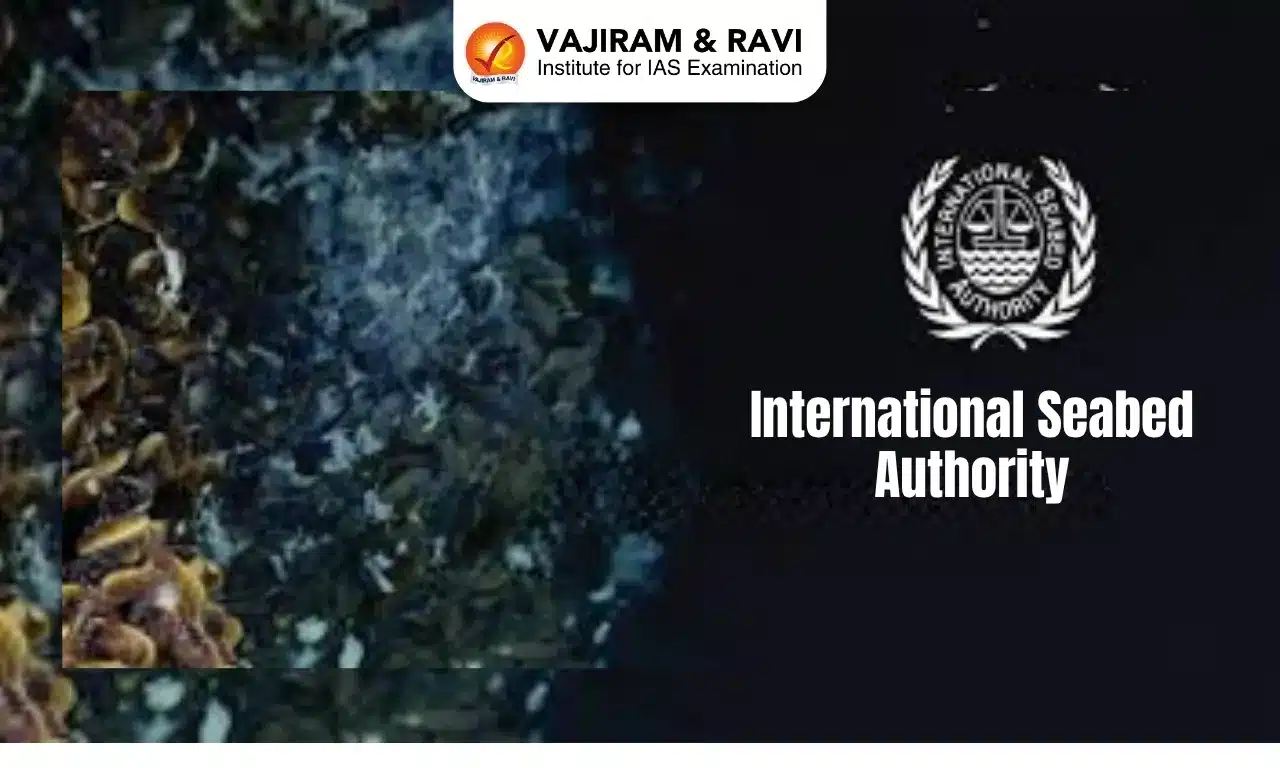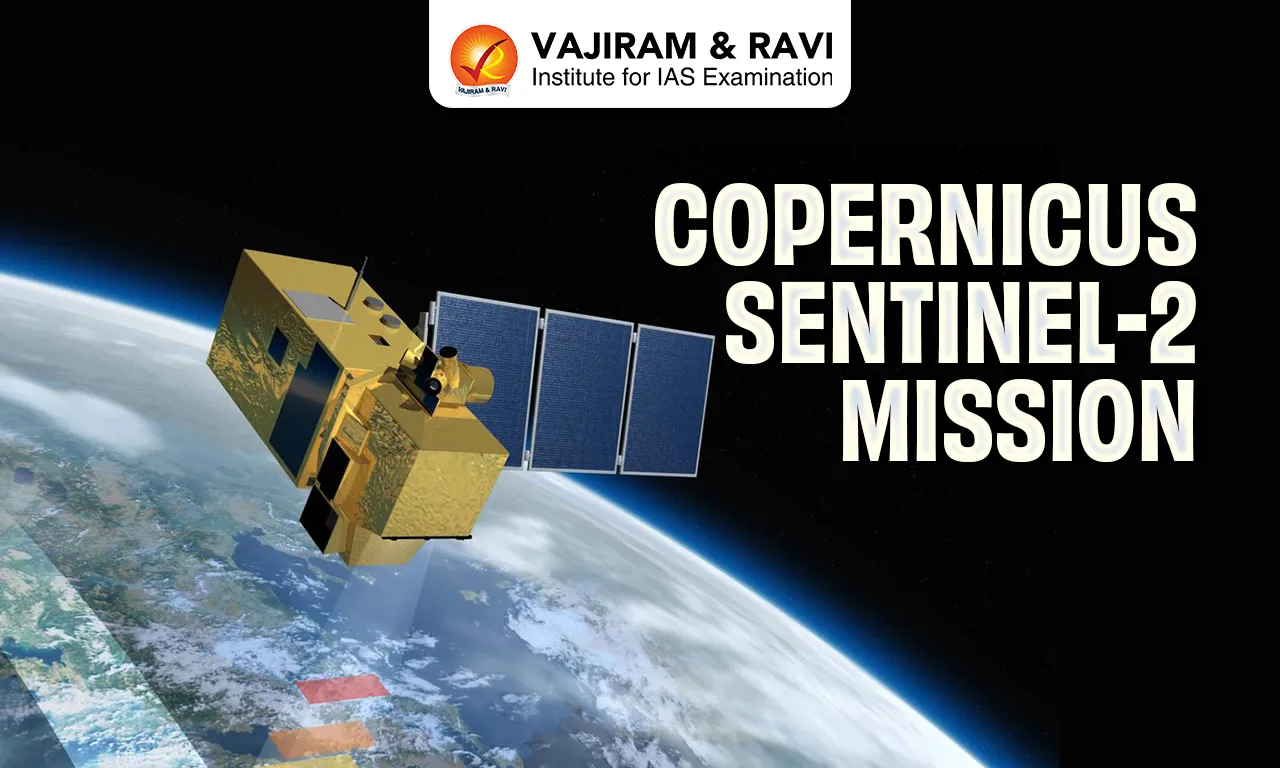International Seabed Authority Latest News
After two weeks of negotiations, the International Seabed Authority (ISA) is still far from finalising rules for the extraction of coveted metals on the high seas despite heightened pressure triggered by US efforts to fast-track the controversial practice.
About International Seabed Authority
- It is an autonomous international organization established under the 1982 United Nations Convention on the Law of the Sea (UNCLOS) and the 1994 Agreement relating to the Implementation of Part XI of the United Nations Convention on the Law of the Sea (1994 Agreement).
- ISA, which has its headquarters in Kingston, Jamaica, came into existence on 16 November 1994, upon the entry into force of UNCLOS.
- Mandate: To regulate mining and related activities in the international seabed beyond national jurisdiction.
- The international seabed area — the part which is under ISA jurisdiction — is the seabed and ocean floor and the subsoil thereof, beyond the limits of national jurisdiction.
- The international seabed area covers around 54 percent of the total area of the world’s oceans.
- ISA is the organization through which states parties to UNCLOS organize and control all mineral-resources-related activities in the international seabed area for the benefit of humankind as a whole.
- In so doing, ISA has the mandate to ensure the effective protection of the marine environment from harmful effects that may arise from deep-seabed-related activities.
International Seabed Authority Membership
- In accordance with UNCLOS, Article 156(2), all States Parties to UNCLOS are members of ISA.
- ISA has 169 members, including 168 member States and the European Union.
International Seabed Authority Structure
- The supreme authority of the ISA is the assembly, in which all ISA members are represented.
- The assembly sets general policies, establishes budgets, and elects a 36-member council, which serves as the ISA’s executive authority.
- The council approves contracts with private corporations and government entities for exploration and mining in specified areas of the international seabed.
- The council oversees implementation of the seabed provisions of the UNCLOS and establishes provisional rules and procedures (subject to approval by the assembly) by which the ISA exercises its regulatory authority.
- The secretary-general of the ISA is nominated by the council and is elected by the assembly to a four-year term.
Key Facts about United Nations Convention on the Law of the Sea
- UNCLOS, also called the Law of the Sea Convention or the Law of the Sea Treaty, is an international agreement that establishes a legal framework for all marine and maritime activities.
- It lays down a comprehensive regime of law and order in the world’s oceans and seas, establishing rules governing all uses of the oceans and their resources.
- UNCLOS became effective on 16th November 1982.
- UNCLOS covers a wide range of issues, including:
- The definition of maritime zones, such as the territorial sea, the contiguous zone, the exclusive economic zone, and the continental shelf.
- The rights and responsibilities of coastal states and flag states.
- The conservation and management of marine resources.
- The protection of the marine environment.
- The peaceful settlement of disputes
Source: TH
Last updated on February, 2026
→ UPSC Notification 2026 is now out on the official website at upsconline.nic.in.
→ UPSC IFoS Notification 2026 is now out on the official website at upsconline.nic.in.
→ UPSC Calendar 2026 has been released.
→ Check out the latest UPSC Syllabus 2026 here.
→ Join Vajiram & Ravi’s Interview Guidance Programme for expert help to crack your final UPSC stage.
→ UPSC Mains Result 2025 is now out.
→ UPSC Prelims 2026 will be conducted on 24th May, 2026 & UPSC Mains 2026 will be conducted on 21st August 2026.
→ The UPSC Selection Process is of 3 stages-Prelims, Mains and Interview.
→ Prepare effectively with Vajiram & Ravi’s UPSC Prelims Test Series 2026 featuring full-length mock tests, detailed solutions, and performance analysis.
→ Enroll in Vajiram & Ravi’s UPSC Mains Test Series 2026 for structured answer writing practice, expert evaluation, and exam-oriented feedback.
→ Join Vajiram & Ravi’s Best UPSC Mentorship Program for personalized guidance, strategy planning, and one-to-one support from experienced mentors.
→ UPSC Result 2024 is released with latest UPSC Marksheet 2024. Check Now!
→ UPSC Toppers List 2024 is released now. Shakti Dubey is UPSC AIR 1 2024 Topper.
→ Also check Best UPSC Coaching in India
International Seabed Authority FAQs
Q1. Under which international legal framework was the International Seabed Authority (ISA) established?+
Q2. Where is the headquarters of the International Seabed Authority (ISA) loca+
Q3. What is the main mandate of the International Seabed Authority?+
Tags: international seabed authority prelims pointers upsc current affairs upsc prelims current affairs






















